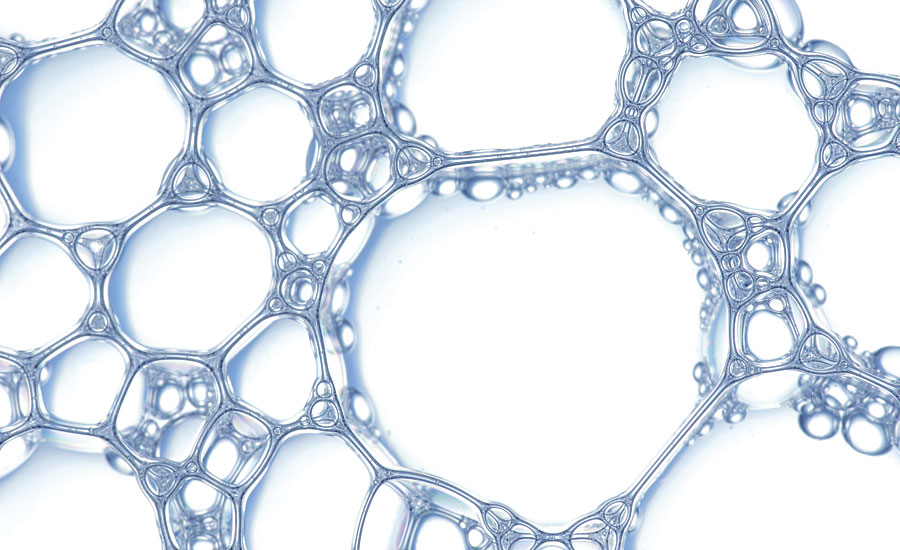The Importance of Defoamers in Industrial Processes and Applications
Discover the Leading Benefits of Using Defoamers in Industrial Processes
The application of defoamers in industrial processes offers an array of engaging benefits that can enhance operational performance and item quality. By effectively regulating foam manufacturing, these representatives not just enhance material flow however also add to substantial price decreases and enhanced sustainability. Their application spans numerous industries, which questions about their role in mitigating ecological influence while guaranteeing constant result. Comprehending these benefits is vital for industries intending to refine their processes. The ramifications of taking on defoamers may be much more profound than originally regarded. What particular benefits could your company harness?
Boosted Process Effectiveness
Enhancing commercial procedures frequently includes resolving foaming problems, which can impede functional effectiveness. Foam development can conflict with the appropriate performance of tools, reduce the efficient use of resources, and make complex the surveillance of crucial specifications. By applying defoamers, sectors can properly reduce these concerns, resulting in streamlined operations and improved efficiency.
Defoamers work by destabilizing the foam framework, permitting for rapid collapse and significant reduction in foam volume. This action not just enhances the flow of materials with tools, such as pipes, activators, and mixers, but also minimizes interruptions created by foam overflow. Subsequently, devices downtime is decreased, enabling a more effective and continual manufacturing procedure.
In addition, using defoamers can bring about lowered power usage. With much less foam to manage, pumps and compressors can operate a lot more efficiently, causing lower operational prices and a general improvement in procedure throughput. Eventually, the tactical use of defoamers not only addresses prompt foaming difficulties but likewise adds to a more effective industrial ecosystem, cultivating an affordable benefit in a demanding market.
Improved Product Top Quality
The assimilation of defoamers in commercial processes plays an essential role in boosting product high quality. By efficiently controlling foam development, defoamers add to the consistency and uniformity of end products. Too much foam can result in aeration, which adversely influences the appearance and security of formulations, specifically in markets such as food and layers, pharmaceuticals, and beverages.

In addition, defoamers promote far better blending and dispersion of ingredients, leading to homogeneity in solutions. This is necessary in applications where specific active ingredient proportions are important for performance and safety. In addition, the elimination of foam can lower the risk of contamination throughout manufacturing, further guarding product stability.
Inevitably, by enhancing item quality, defoamers not just boost consumer satisfaction however additionally reinforce brand name credibility. Their duty in maintaining high-grade requirements underscores their value in modern commercial processes.
Expense Reduction Benefits
Executing defoamers in industrial procedures can result in significant price reduction advantages. By efficiently controlling foam development, defoamers lessen product loss throughout manufacturing, therefore maximizing material use. This decrease in waste converts Click This Link directly into reduced resources costs, improving overall operational performance.
Additionally, the usage of defoamers can decrease power consumption. Extreme foam can hinder tools performance, causing boosted energy requirements to keep manufacturing degrees. By minimizing foam, defoamers facilitate smoother operations, allowing machinery to run more efficiently and reducing energy expenditures.

In addition, defoamers can reduce handling times. Foam can produce extra obstacles that lengthen production cycles. By utilizing defoamers, industries can improve their processes, bring about faster turnaround times and enhanced throughput. This performance not only accelerates production however likewise permits firms to satisfy market demands a lot more promptly.

Environmental Effect Reduction
In industrial procedures, making use of defoamers plays a crucial duty in mitigating environmental influences connected with foam generation. Foam can bring about considerable functional inefficiencies, leading to raised discharges and waste generation. By effectively managing foam, defoamers aid maintain procedure efficiency, consequently lowering the overall environmental impact of procedures.
In addition, too much foam can overflow containment systems, resulting in spills that might infect dirt and water resources. Defoamers assist decrease this risk by making sure that foaming does not exceed suggested restrictions, promoting conformity with environmental laws. This positive technique not only safeguards environments yet likewise enhances the sustainability of industrial practices.
Additionally, using defoamers can reduce power intake in numerous processes. defoamers. Lowering foam formation reduces the requirement for additional energy-intensive steps, such as raised anxiety or pumping, which may otherwise be required to take care of foam. As a result, the adoption of defoamers straightens with more comprehensive sustainability objectives by promoting energy efficiency while minimizing the carbon impact of industrial activities.
Eventually, incorporating defoamers into industrial procedures is a critical step that sustains ecological stewardship and responsible source administration.
Convenience Throughout Industries
Throughout various industries, defoamers demonstrate impressive versatility, adapting to the specific requirements of diverse applications. In see this the food and beverage market, for example, defoamers are important to keeping item top quality by stopping foam development throughout processing, which can affect structure and taste. In the pharmaceutical sector, defoamers make sure the security of solutions, enhancing product effectiveness and uniformity.
In the chemical manufacturing world, defoamers her response promote smoother procedures by decreasing foam in reaction vessels, hence improving yield and reducing downtime. The paper and pulp sector relies upon defoamers to improve the efficiency of pulp processing and paper manufacturing, ensuring ideal product integrity. In addition, in wastewater treatment facilities, defoamers play a vital function in regulating foam during aeration processes, resulting in improved therapy end results.
The adaptability of defoamers reaches the oil and gas sector, where they aid in taking care of foam in exploration fluids and production processes. By customizing formulas to meet certain sector requirements, defoamers work as important tools that improve functional efficiency, product quality, and general procedure efficiency throughout a wide variety of fields. Their adaptability underscores their worth in modern commercial applications.
Verdict
In verdict, the usage of defoamers in industrial processes offers various benefits, consisting of boosted performance, enhanced item high quality, substantial cost decreases, and favorable environmental influences. The integration of defoamers represents a strategic technique to resolving challenges associated with foam administration in numerous making settings.
Eventually, the critical use of defoamers not just addresses immediate lathering challenges but also adds to a more effective commercial ecosystem, fostering a competitive advantage in a requiring market.
In commercial procedures, the usage of defoamers plays an important function in mitigating ecological effects connected with foam generation. By successfully managing foam, defoamers assist maintain procedure effectiveness, thus decreasing the total environmental footprint of procedures.
Additionally, in wastewater therapy facilities, defoamers play an essential role in managing foam throughout aeration processes, leading to better treatment results.
